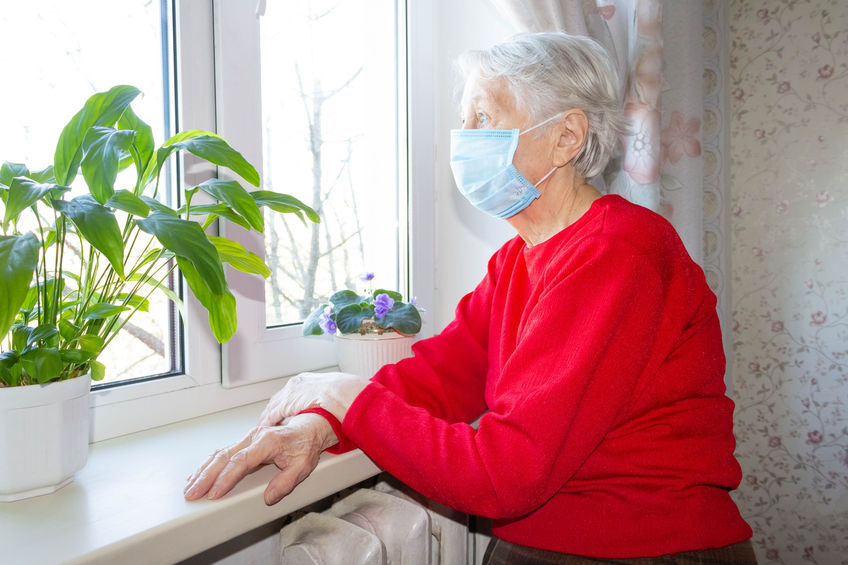Loneliness in seniors is a growing yet often invisible epidemic. With advancing age comes a shrinking social circle, leaving many elderly individuals isolated and emotionally vulnerable. But how can we, as loved ones, effectively intervene?
The Loneliness Epidemic Among Seniors
Loneliness is very much a problem among seniors. Some would even call it an epidemic. And while things have slightly improved (on a macro level) from the “Covid peak,” this is still a serious issue.
According to the National Poll on Healthy Aging, “In 2023, one in three adults aged 50–80 (34%) reported feeling isolated from others (29% some of the time, 5% often) in the past year.”
That equates to millions of elderly individuals feeling isolated and lonely in their day-to-day lives. The implications of this are serious and far-reaching.
As the poll explains, “Chronic loneliness (persistent feelings of isolation and/or a lack of companionship) can adversely affect mental, cognitive, and physical health, general well-being, and even longevity.”
As someone who knows or interacts with seniors, it’s imperative that you don’t overlook this issue and see it as someone else’s problem. This is something you have to be willing to address on whatever scale makes sense for you.
3 Ways to Help Seniors Overcome Loneliness
You don’t have to be a savior. Your job is simply to show the seniors in your life that they’re special and important. You can do this any number of ways, but here are several suggestions:
1. Build Social Connections
Loneliness is a deeply emotional experience, and the remedy often lies in meaningful human connections. Encouraging seniors to engage with others can help alleviate the sense of isolation that frequently accompanies aging.
Social interaction is obviously the number one counter against loneliness. It has a positive impact on mental and emotional well-being. It also boosts mood, reduces stress, and provides an option for emotional support during what could otherwise be a challenging time.
While you can personally build connections with elderly individuals, there’s also something to be said for helping facilitate engaging among seniors on a peer-to-peer level. Direct them to senior clubs, social groups, and hobby-based organizations in their community. If you can’t find any, consider creating one.
Take the initiative to organize social events and gatherings within your local community. These could include potlucks, game nights, or even neighborhood watch groups.
If your senior is able bodied, getting them plugged into a volunteering role is an excellent way to give them meaning, purpose, and social connection. There’s something powerful about the combination of doing meaningful, sacrificial work and building relationships with the people you’re serving alongside.
2. Show You’re Thinking About Them
Sometimes lonely people just want to know that other people are thinking about them. This goes a long way toward helping them feel seen and cared for.
One way to show someone you’re thinking about them is to give a gift. According to DailyCaring, the best gifts for seniors include keepsakes, experiences, senior-friendly clothes and footwear, mobility aids, and gift cards.
3. Leverage Technology
Whether you’re in a position to give it as a gift, or you simply encourage seniors to make the investment, technology is one of the greatest aids for lonely people who need connection with the outside world.
Video calling platforms like Zoom, Skype, or FaceTime enable seniors to have face-to-face conversations with family and friends, regardless of physical distance. Helping seniors set up and become comfortable with these tools can facilitate meaningful connections.
Then there’s social media. Platforms such as Facebook and Instagram offer seniors the opportunity to reconnect with old friends and keep up with family updates. Encourage your elderly loved ones to create accounts and explore these platforms to foster online friendships.
There are even senior-friendly tablets and phones that make it easy for people with no technological experience to access devices for getting in touch with adult children, grandchildren, and friends who don’t live nearby.
Doing Your Part
At the end of the day, you aren’t responsible for ending the loneliness epidemic in the senior population. You do, however, have a responsibility to acknowledge and address loneliness issues among seniors that you know and/or who live in your community. You don’t have to solve it, but you should proactively do your part.




